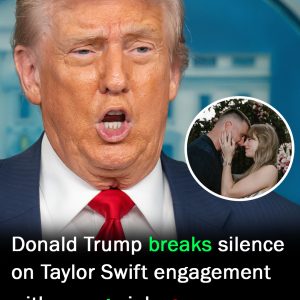On the opposite side: Kash Patel, a former Trump official, a conservative provocateur, and a magnet for controversy.
It was intended to be a contest of verbal jabs. Words were like weapons.
However, no one anticipated the moment that would unfold next. Because at times, in a room filled with voices vying for attention, it is the most silent gaze that possesses the greatest influence.

ROUND ONE: THE SMIRK THAT STARTED IT
From the very beginning of the segment, Crockett found her rhythm. She did not merely speak—she delivered a performance.
Her words resonated with flair, her posture exuded confidence, and her audience responded with knowing laughter and approving murmurs.
The panel was engaged in a heated discussion regarding immigration policy when she made her move.
A well-timed jab. A clever remark aimed at Patel’s previous government position, infused with just enough sarcasm to leave a mark. It was crafted for the camera. For that viral moment. And it achieved what it set out to do—sort of. A few audience members chuckled.
Then silence. And not the favorable kind. Not the kind that follows a mic drop. This was the type of stillness that descends when something feels amiss. When everyone in the room suddenly realizes they are not merely watching a show—they are witnessing something genuine.
Crockett blinked. She moved on. She attempted to regain the momentum. But something had changed.
IN THE THIRD ROW: A PRESENCE UNLIKE ANY OTHER
At first, no one noticed the man seated in the third row.
He was not animated like the others. He did not nod, clap, or react. He remained still—hands folded, back straight, embodying a presence that transcended mere personhood.
He was dressed in a dark suit, adorned with a subtle lapel pin featuring three polished stars. His gaze was fixed on the stage.
He did not speak.
He did not move.
Yet, the weight of his presence was undeniable.
It was Kash Patel’s father.
As the conversation struggled to regain its momentum, more eyes gradually began to shift in his direction.
Not because he sought attention, but because, in some inexplicable way… he commanded it.
There was a stillness surrounding him, akin to the eye of a storm. A reminder that while politicians debate the future, some individuals have experienced a past that surpasses the imagination of anyone else in the room.
THE SHIFT
The segment progressed. Crockett’s voice rose and then diminished. Patel responded, but his tone had shifted—less confrontational, more subdued. Almost detached.
Then, in the middle of his sentence, he halted. The host glanced over, anticipating a retort.
Instead, Patel turned slightly in his chair and stated, calmly:
“Before I reply… I would like to share something personal. If that is acceptable.” Uncommon. Surprising. The audience leaned in.
“That man in the third row—that is my father. He arrived here from Gujarat with nothing. Not a word of English. Not a single favor to his name. Just determination. He worked in a factory during the day and cleaned train cars at night. For thirty years.”
He did not look at Crockett. He was not making accusations. “He did not have the luxury of humor. He did not have time to take offense. He had to survive.”
The atmosphere thickened. Patel paused, his voice firm yet strained.
“Tonight, I observed him endure a joke made at my expense. And he did not react. Because men like him do not react. They persevere.”
A silence descended, heavier than the lights above.
“He is not here for politics. He is here because he still believes that even amidst disagreement, there is space for dignity.”
JASMINE CROCKETT’S RECKONING
You could see it in her eyes.
Crockett wasn’t defensive. She wasn’t smug. She looked… still.
As Patel spoke, her gaze drifted toward the third row. And for the first time all evening, her face softened. Something was happening. Something off-script.
No one knew exactly what passed between her and the older man sitting there, but it didn’t need words.
She sat back in her chair. Her hands rested. And for the first time, she wasn’t preparing her next line. She was just… listening.
THE APPEARANCE THAT ALTERED EVERYTHING
The cameras did not zoom in. There was no cutaway shot. Merely a wide frame, where the man in the third row sat with a calm authority that overshadowed every speaker on stage.
And as Crockett gazed at him, she blinked. Once. Twice. As if she had just come to the realization that the stage she had dominated a moment ago was no longer hers. It belonged to that man. To his silence. To his narrative.
WHEN THEATER MEETS TRUTH
The host attempted to regain control, yet no one was prepared to proceed. Not at this moment. Crockett cleared her throat. She offered no apology. However, she did express something unusual: “At times, we become so focused on making a point… that we overlook who is present in the room.”
It was not an admission of guilt. It was something more profound. Acknowledgment. That perhaps, for once, the dialogue had transcended the boundaries of left and right.
Beyond the preparation for debate and the lines meant to elicit applause. Into a realm of authenticity.
THE FINAL WORDS
As the segment concluded, Patel glanced once more at his father, then turned back to the audience.
“Every joke has a target. However, at times, that target carries a history that merits more than mere laughter.”
He was not filled with anger. He did not feel victorious.
He was… human. And in a broadcast designed for conflict, that vulnerability resonated more profoundly than any headline.
THE AFTERMATH
The video gained widespread attention. However, it was not for the typical reasons. There was no heated argument. No moment of triumph. Just a change. A look. A teaching moment.
Analysts from both perspectives acknowledged: it was the first occasion in quite some time that a political segment seemed to embody something deeper. It did not resolve a policy debate. It did not alter electoral outcomes. But it transformed individuals.
THE LESSON IN THE SILENCE
We dedicate an excessive amount of time to shouting across aisles, neglecting the profound impact of pausing Of observing.
On that particular night, within a setting designed for grandeur, the most impactful moment emerged from a man who uttered not a single word. In a society where everyone strives to amplify their voice, perhaps that is precisely what we required.





